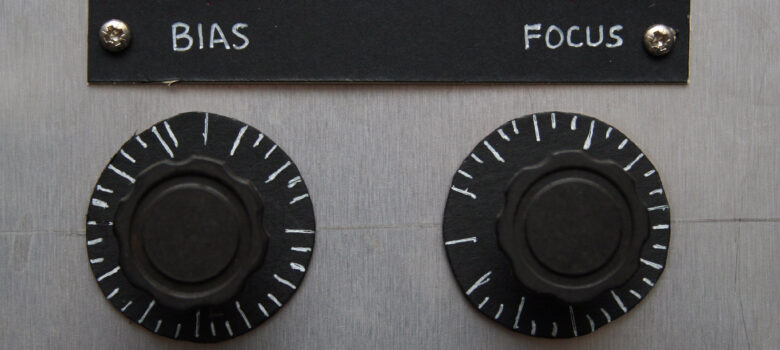Yesterday I was a guest on a Toronto-area radio station where I was asked to discuss the government’s plans to more than double the amount available per journalist as part of the labour journalism tax credit. After a discussion of the tax credit program and months of blocked news links on Facebook as a consequence of Bill C-18, the host shifted the discussion by suggesting that the media had largely become propaganda on behalf of the government, insisting that these measures were consistent with a strategy of either blocking or influencing news coverage. I paused for a moment and said I disagreed, noting that there was good journalism and bad journalism, and his take was bad journalism. The segment ended immediately after that.
That experience came to mind later in the day as the debate over media bias and government funding captured further attention after Jenni Byrne, a leader in the Pierre Poilievre team, tweeted that criticism of Poilievre’s interactions with a journalist could be chalked up to the increased funding and that the bailout would mean journalists “would do whatever the PMO says.” Byrne’s comment strikes me as absurd as those of the radio host. All journalists have some biases. They wouldn’t be human if they didn’t. But the suggestion that a government tax plan would influence their individual coverage is just not credible.
While I don’t think any individual journalist biases coverage based on media funding, I do think the government’s media policies – both the significant public funding and Bill C-18 – have led to biased editorial coverage and a growing public perception of media bias. Indeed, while the government keeps insisting that its efforts are designed to support an independent media sector, I think it has the opposite effect, undermining public trust in our media as many rightfully question how media companies reliant for up to 70% of their news funding from either government tax credits or regulatory policy can be truly objective and independent (the 70% figure is the combined value of the tax credits and its fading hopes for what Bill C-18 will generate).
This is particularly true when the difference between editorial and business within the news industry becomes increasingly blurred. As I have told House and Senate committees, I personally had an opinion piece spiked because it ran counter the lobbying narrative of the news outlet in support of the bill. I know of others that have had the same experience. The Bill C-18 coverage was an egregious example of this bias, with outlets that normally criticize the government on just about everything finding the one policy that they liked. I think response has been even more troubling at the CBC, which has actively supported government digital policy when it stands to benefit. To suggest that support for these policies is a coincidence is as absurd as claims journalists now take directions from the PMO due to labour tax credits.
The perception of lost independence or bias is a function of more than just the money, however. In the case of the increased journalism tax credit, the government gave News Media Canada exactly what it had demanded months earlier right down to the penny. There was no particular economic rationale for the specific numbers. Rather, the lobby group knew that the government was inclined to support it and the government simply fell in line. Concerns about perceived bias and damaged reputation are easy to ignore when a big pot of money awaits.
The situation is even worse with Bill C-18. The Online News Act will take effect in less than a month. The delays in final regulations presumably means that the government and Google are in active discussions about those regulations and whether there is room for compromise. Given their respective incentives – the government desperately needs a deal given the disastrous effect of Meta blocking news links and Google has always made it clear it would prefer an agreement – a last minute deal is always possible.
But note what is happening behind the scenes. This isn’t really a negotiation between Google and the government. It is a negotiation between Google and the media companies with the government acting as their representative since there will be no deal unless the media companies grant their approval. Simply put, you cannot credibly claim independence from government when you simultaneously team up with it in regulatory negotiations. If they are able to strike a deal, it will be a proverbial case of being careful what you wish for, with the price including a further diminishment of the reputation of Canadian media as independent from the government thereby fuelling further skepticism about bias and public distrust.












Since this is a part-time job, you won’t be provided with strict targets. Based on your available time, set it for yourself and start working. qG It needs contributing a few time and exertion for completing the work but makes a difference you gain a nice looking amount.
Here See…… https://wontjobs99.blogspot.com
Journalists only have themselves to blame for the mess they find themselves in.
Begging government to bail them out means they can no longer claim to be independent. In fact, it makes them look like government toadies.
News chains that are treated as a parts car by their owners (Post Media) drive readers and advertisers away. Having the government give in to a lobby group and set up a program that helps the owners milk as much cash as they can from their “parts car” is infuriating. Let them go bankrupt.
Journalists claiming, they can’t fix their operations without government bailouts is nonsense. There are several examples in Canada (the Globe, CP24) and in other countries (UK, France) of news organizations successfully transitioning to the digital world.
One of the saddest things about this self-inflicted mess is that the badly run legacy organizations seem intent on dragging down their younger more nimble competitors with them. And the government seems determined to help them.
I have to admit that I’m confused as to your position, Prof. Geist.
First, you say that it’s “bad journalism” to suggest that “the media had largely become propaganda on behalf of the government”. You follow this by recounting that you, and many others, have had opinion columns spiked because they criticize proposed government legislation, and that this sort of bias in news coverage has become widespread.
It’s important to note that news coverage can be fairly characterized as “propaganda” even if no individual journalist is paid and instructed specifically to boost the government’s own messaging. All that is required is that any journalist who departs from the party line be censored (as you’ve described), and selection effects will ensure that all news coverage is consistent with the government’s desired messaging. Chinese news media is full of stories that are factually true, written by journalists whose only interest is reporting the truth. It’s easy to find stories truthfully reporting on the popularity of the spring festival and the impressive progress made on civic construction projects. This is all consistent with Chinese news media being “largely … propaganda on behalf of the government”.
Working on the web pays me more than $120 to $130 per hour. I learned about this activity three months ago, and since then I have earned around $15k without having any online working skills.
To test it, copy the webpage below………………………… https://paymoney35.blogspot.com/
It is a sick backdoor way of introducing censorship under the guise of helping Canadian content creators. It would never be legal if it wasn’t disguised like this. Had it not been for the sharing and viewing of independent news on social media pre bill c-18 we may have still been locked down today.
Pingback: Government salvages C-18 with Google deal—but it's hardly an example of good policy - The Hub